Monthly Archives: June 2019
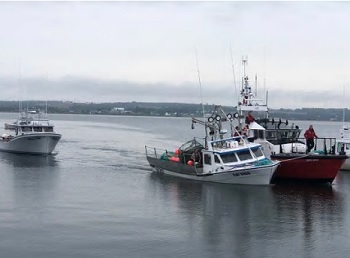
Crab boat damaged after crash at Red Point Rock
A crab boat has been damaged after it struck Red Point Rock, near Souris, P.E.I., Saturday afternoon. The rock formation is well-known to local fishermen and is considered dangerous. Jeffrey MacNeill, a volunteer firefighter, was one of the first to arrive at the accident scene. The boat had between four and five crew members and was towed back to shore, MacNeill said. The process took several hours. >click to read< 17:58
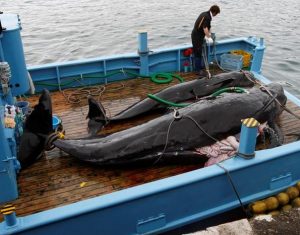
What’s behind Japan’s support of whaling?
Japan has for decades been steadfastly defiant about hunting whales despite widespread anger, including from key allies like the United States. After roughly 30 years of what it has called scientific research whaling, which saw several hundred minke whales taken annually in the Antarctic and North Pacific, Japan in December announced it would leave the International Whaling Commission(IWC) and resume commercial whaling on July 1. >click to read< 14:21
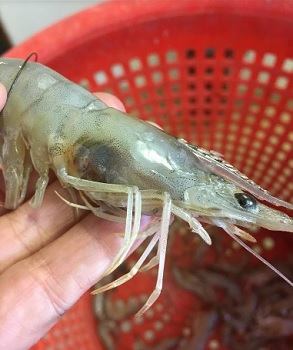
Black gill showing up early
Black gill showed up early this year in Georgia’s shrimp. The evidence came from the first trawl of a day-long research cruise out of Skidaway Institute of Oceanography on June 21. Researchers aboard the R/V Savannah lowered the net in the commercial fishing grounds just off of Wassaw Island and pulled up a catch so disappointingly small it could fit in a backpack. But among the dozen fish and handful of starfish were two brown shrimp. And one was inky black around its gills. “It’s really early,” said University of Georgia graduate student Megan Tomamichel, as she examined the shrimp. “But we’ve had a lot of warm weather.” >click to read< 12:09
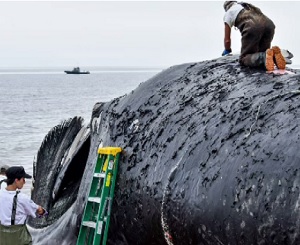
Necropsy on third North Atlantic right whale shows evidence of blunt trauma
Preliminary findings from the third necropsy of a 33-year-old right whale — named Comet – show evidence which is highly compatible with death due to blunt force, consistent with vessel strikes. Canadian conservationists are calling the death of a sixth North Atlantic right whale that was found last week devastating. >click to read< 11:52
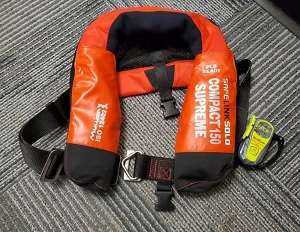
N.L. regulators watching closely as B.C. requires life jackets on fishing vessels
Fishers in British Columbia now have a clear directive when it comes to life jackets: they must be worn on decks of fishing vessels. That regulation change is getting attention in Newfoundland and Labrador.,,, The amended regulation in B.C. has safety advocates in Newfoundland and Labrador talking. >click to read< 10:37
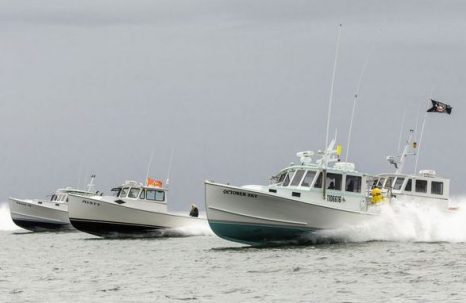
“I’m not here for prizes. I’m here for glory.” Lobstermen Go Racing
When you ask a Maine lobster-boat racer what kind of horsepower he’s running, the first answer will always be a dutiful recitation of the factory specification, usually delivered with a smirk. Ask again, and the second answer might be more like the truth. Like if his 18.1-liter CAT diesel was rated for 700 horsepower before he made a few mods—free-flowing intake and exhaust, at the very least—maybe he’d acknowledge it’s more like 800 horsepower now. If the first answer is 1,000, the second might be more like 1,200. But the reality is that nobody knows. It’s not like you can dyno-test a commercial fishing boat. >click to read< 09:56

Connecticut: New dual landings law intended to benefit local fishermen
A bill introduced by state Sen. Heather Somers, aimed at easing regulations preventing local commercial fishermen from landing catches in multiple states on the same trip, has been signed into law by Gov. Ned Lamont. The law currently in effect requires fishermen to designate their catch for a specific state and offload the catch in that state, even if the fishermen were licensed in multiple states and regardless of whether the catch was made in federal or state waters. Fishermen had to make multiple trips per week far offshore to make each catch designated for each state. >click to read< 08:55
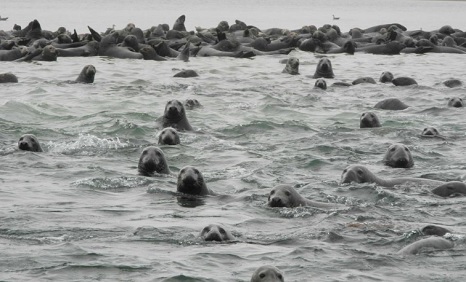
Sharks and seals: A success story ?
With five shark attacks on people since 2012 — including swimmers, kayakers, a paddleboarder and a fatal attack on a bodyboarder last year — surfers, swimmers, public safety officials and business owners now worry that the ocean is suddenly not safe. Some see an imbalance that requires corrective measures, like a cull of seals and maybe sharks to reduce risk and bolster fish harvests. But others marvel at a pair of conservation success stories in an era where species extinction is more often the news. >click to read<23:54
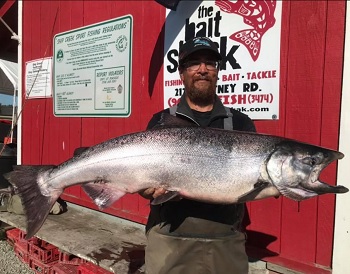
Downtime – This year’s Slam’n Salm’n Derby winner is a commercial fisherman who hits Ship Creek on his time off
This year’s winner of the Slam’n Salm’n Derby is an Anchorage angler who spends many of his hours off from commercial fishing at Ship Creek. Robert George III won this year’s Anchorage fishing derby with a 30.35-pound king salmon.,,, After the creekside awards ceremony Sunday, George examined a hefty gold nugget included as part of the prize package valued at more than $5,000. George said he commercial long-lines for Pacific cod out of Dutch Harbor.,,, >click to read< 16:42
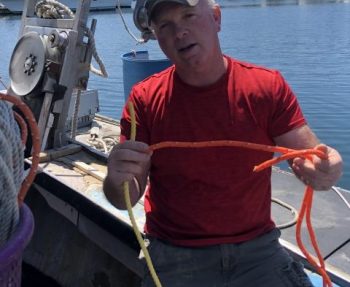
A Life-Long Lobsterman Also Works Hard On Ways To Avoid Whales
Rob Martin was five miles out on his boat, Resolve, lobstering with his crew, and made a call on his way back to port. Martin wasn’t calling his buyer. He was joining a conference call for the National Oceanic and Atmospheric Administration’s Atlantic Large Whale Take Reduction Team, of which he is a member.,, The conversation revolved around installing breakaway sleeves in vertical lines from traps to buoys so whales can snap them on contact and not become entangled. Martin wasn’t required to make those changes, but he already had. He has been working for years ,,, >click to read< 14:20
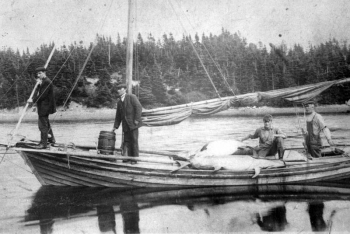
The Swordfishing tradition – Dangers of catching the ‘big fish’ off Cape Breton
The earliest report of a Canadian commercial swordfish industry was in 1903 in the Department of Marine and Fisheries annual report, but the Mi’kmaq fished swordfish long before that time. Between 1909 and 1959, more than half of the swordfish caught in Canada were landed in Cape Breton.,, In order to successfully catch a swordfish, you had to have great aim and a whole lot of skill. Any rattles from the boat would create vibrations in the water that the fish would take as a warning and disappear. If the shadow of your mast landed on the fish, “whoosh he was just gone like lightning.” >click to read< 13:00
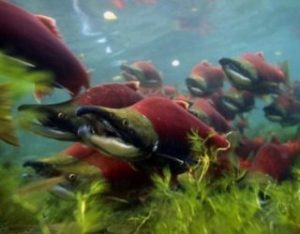
Bristol Bay – Why the two main forecasts have a 5 million-fish difference
This year, 44.6 million sockeye salmon will return to Bristol Bay – if you trust the University of Washington forecast. But the University of Washington forecast isn’t the only one out there. “This year’s forecast is 40.18 million,” said Gregory Buck, Fish and Game’s fishery biologist and regional research coordinator for Bristol Bay. Buck says the almost 5 million sockeye difference between the ADF&G and UW forecasts has a pretty simple explanation: an accumulation of small data interpretation differences. >click to read< 10:31
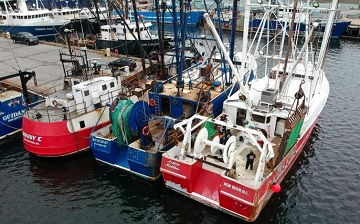
Fishermen face uphill battle in lawsuit over New York wind site
Fishermen and the city of New Bedford are facing an uphill battle in their fight against a New York offshore wind location after losing a lawsuit in September. Attorney David Frulla, who represents the Fisheries Survival Fund and other plaintiffs in the case, said he was disappointed at the court decision but has not given up. “I just don’t think the judge understood that these leases aren’t theoretical, that they actually confer rights,” he said. >click to read< 09:46
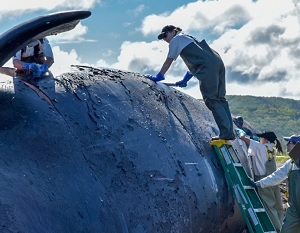
Fisheries and Oceans Canada Blunder – Expert says feds should have acted more quickly on right whale migration
Fisheries and Oceans Canada says it has sighted another dead endangered right whale drifting off the Gaspé Peninsula, bringing the total number of deaths in Canadian waters this year to six. The government was still assessing recovery and necropsy options for this sixth whale. The new information late Thursday came as an expert said Canadian officials did not respond quickly enough to this year’s migration of North Atlantic right whales. >click to read< 08:55
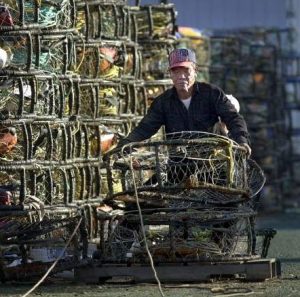
Bodega Bay fisherman killed in freak accident off Moss Landing
A veteran of Bodega Bay’s commercial fishing fleet died this week off the California Coast in a freak accident aboard his 33-foot vessel, Amoorea, apparently after his water-protective clothing became snagged in the propeller shaft, pinning him between the shaft and the hull of the boat. Dan Nguyen, a Vietnam native who arrived on the West Coast in the early 1990s with tales of serving as a U.S. scout during wartime, subsequent imprisonment and, later, killing a guard to escape the North Vietnamese, already was unconscious when a deckhand discovered him badly injured in the engine room, the U.S. Coast Guard said. >click to read< 08:25
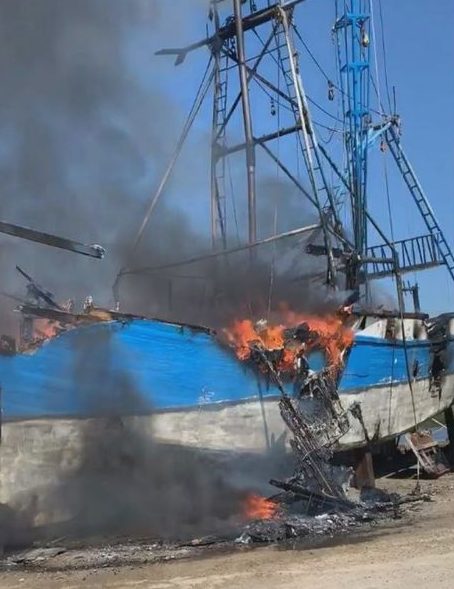
Shrimp boat at Gautier dry dock catches fire again
A shrimp boat that caught fire and burned for hours this spring in Gautier went up in flames again Friday morning. “The Noah” caught fire Friday morning at Pitalo’s boat yard, where it is dry-docked. This is the second time the boat has been in flames. On April 9, it burned for nearly 20 hours before firefighters were able to put it out. >click yo read < 21:32
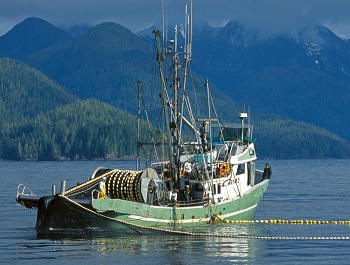
Canada Has a New Fisheries Act. How Does It Stack Up?
Canada has the longest coastline in the world, yet it has long been a lax outlier in fisheries management. But with an overhaul of the federal Fisheries Act now complete, the sense among advocates and fisheries experts is that the tide is about to turn. The passage of Bill C-68 on June 21 means that for the first time since the Fisheries Act was enacted in 1868, Fisheries and Oceans Canada is required to manage fish stocks sustainably and put rebuilding plans in place for those that are depleted. >click to read< 18:36
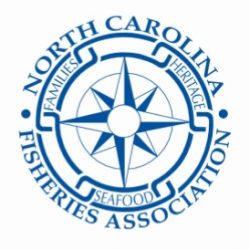
North Carolina Fisheries Association Weekly Update for June 28, 2019
Legislative updates, Bill updates, Calendar, >Click here to read the Weekly Update<, to read all the updates >click here<, for older updates listed as NCFA >click here<15:09
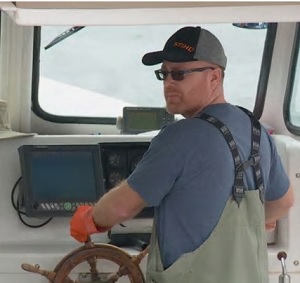
Malpeque lobster boat captain refusing to obey order to wear mandatory PFD
Malpeque lobster boat captain Chris Wall says he has no plans to follow an order to start wearing a personal flotation device. Wall was issued the order a week ago by an occupational health and safety officer with the Workers Compensation Board of P.E.I. “I’ve fished for 25 years, and I plan on fishing the next 25 years without one,” said Wall. “It’s your own personal decision to decide if you want to wear a life jacket or not.” >click to read<13:59

Governor Andrew Cuomo’s Silly War on Natural Gas
Thanks to the shale revolution, the United States is awash in natural gas. Since 2005, domestic gasproduction has nearly doubled, and American companies are now sending liquefied natural gas all over the world, including Chile and China. And pretty soon, U.S. liquid natural gas will be on its way to, of all places, Saudi Arabia. The pandering environmentalist groups demand off shore wind.,, offshore wind projects are being vigorously fought by the Long Island Commercial Fishing Association and commercial fishing groups from New Jersey, Rhode Island, and Massachusetts. The fishermen believe the offshore wind projects will lock them out of some of their most productive fisheries. >click to read<10:50

State of Maine: Real consequences of whale rules
Here we go again. Federal fisheries regulators have been tightening the screws on Maine lobstermen for decades. Now they are planning to take another turn in an effort to reduce “the risk of death or injury” to right whales by 60 percent. In the late 1990s, a trap limit was introduced in the fishery for the first time. It was controversial on the coast, though many lobstermen were willing to go along. The initial limit was set at 1,200, which even the fishermen said was too high, but anything lower was likely to fail in a skeptical Legislature. Shortly after the passage of that,,,By Jill Goldthwait >click to read<09:57
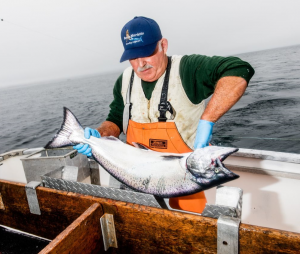
After yearslong shortfall caused by drought and environmental restrictions, California Is Overflowing With Salmon
The phones began ringing at Giovanni’s Fish Market & Galley a week after salmon season opened in May and have barely let up since. “It’s all day, every day,” said Giovanni DeGarimore, the owner.,,, “You can plan for bad years, but it’s hard to navigate when you’re totally closed,” said Lori French, wife of a commercial fisherman who has permits for both crab and salmon. But then the salmon season opened on May 1. “This is a ‘Thank you, Jesus’” moment, Ms. French said over a salmon lunch on the waterfront one day in mid-June, as her husband was out at sea. >click to read<09:31

Transport Canada implements speed limits following death of another right whale
Transport Canada has implemented a speed restriction for vessels in the western part of the Gulf of St. Lawrence following yet another death of the endangered North Atlantic right whale on Wednesday. Fisheries and Oceans Canada confirmed a right whale was found dead on the shores of Anticosti Island near the Gulf of St. Lawrence, bringing the number of recent deaths up to five. Scientists are on scene collecting samples for analysis, and working with various partners to assess necropsy options, said a news release from the fisheries department. >click to read<18:07
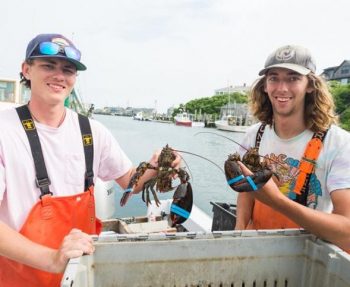
Buoyed by Student Lobster Permits
On the Mayhew dock in Menemsha Harbor, Otto Osmers used a wooden-handled fish pick to pry 25 pounds of skate, one by one, from a 55-gallon drum while Chris Mayhew climbed into a pair of bright orange oil-gear overalls. At seven o’clock on a Sunday morning, most students would still be asleep. But even after a late night of partying, Otto and Chris were wide awake and eager to pull their 25 lobster pots obtained on a special student lobster permit issued by the Division of Marine Fisheries. >click to read<16:19
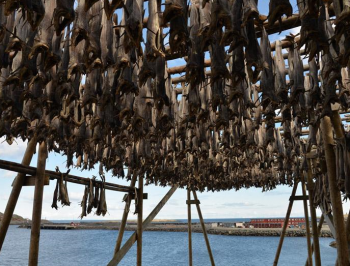
Cod Populations Might be Losing a Migration ‘Supergene’
North Atlantic cod populations haven’t just decreased in number during the last century — their genetic diversity has plunged, too, which could ultimately impede cod from traveling long distances, according to a new study published in the June 26 issue of Science Advances. In particular, overfishing, climate change or a combination of factors may have led to the loss of a closely-linked group of genes — a “supergene” — associated with migratory behavior. Absence of this supergene may interfere with the cod’s ecological niche and could make populations more vulnerable to future collapse. Researchers investigated genetic variation in Northern cod around the Canadian province of Newfoundl,,, >click to read<15:23
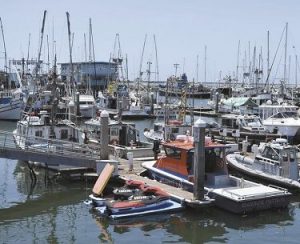
Salmon struggle: Strong season not translating to strong prices for Half Moon Bay fishermen
The commercial salmon season is off to a strong start, but many local fishermen say neither they nor the consumer are reaping the rewards. Fishermen are catching so much salmon that wholesale prices have crashed from $9 per pound down to $5 per pound, where it’s remained for a couple of weeks. “There’s even talk of it going down to $4 a pound and if it does I’ll tie my boat up, it’s hardly worth the wear and tear,” said Frank Sousa, a Half Moon Bay-based fisherman. “It’s hardly worth it at $5.” >click to read<12:24
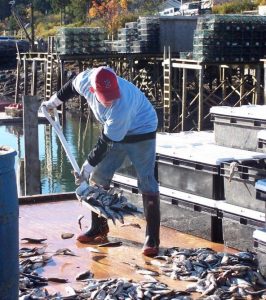
Herring cuts another headache for lobstermen
Maine lobstermen are catching it coming and going, but the “it” ain’t lobsters. Last month, the lobster industry found itself confronted with a demand from federal fisheries regulators that it reduce the risk it posed to endangered right whales by 60 percent and began the arduous task of figuring out how to remove half the vertical buoy lines attached to lobster traps from the water. Though it came as no surprise, earlier this month the New England Fishery Management Council announced that the already scant amount of herring allowed to be caught off the coast of New England would be further reduced in 2020 and 2021. >click to read<11:34
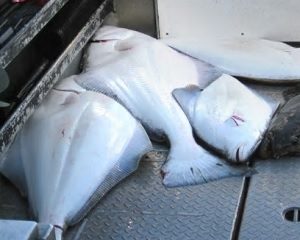
Review of Atlantic halibut survey raises sustainability questions
For more than two decades, Atlantic halibut fishermen have baited their hooks and dropped them to the ocean bottom off Nova Scotia and Newfoundland as part of a collaboration between the fishing industry and the Department of Fisheries and Oceans. The annual May to July halibut longline survey is used to predict halibut abundance in a thriving fishery worth $60 million. Dalhousie University biology student Isabelle Hurley wanted to know if the data told another story. She looked at what else was caught — so-called bycatch — in the survey between 1998 and 2016. >click to read<10:32
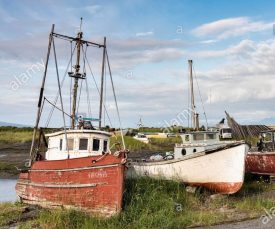
Derelict Vessels Act – Derelict vessel law sets up ‘DMV gantlet’ for thousands of Alaska mariners
A well-intended new Alaska law has gone awry from a botched roll out that has turned thousands of Alaskan fishing vessel, tender, barge and sport fish operators into lawbreakers. Since the start of 2019, all vessels over 24 feet are required to be registered with the State at a Department of Motor Vehicles office. Previously, vessels that were documented with the US Coast Guard were not also required to register with the state. The registration costs $24 and is good for three years. “You need to get down to the DMV whether you’re documented or not,” >click to read<09:39



































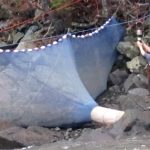

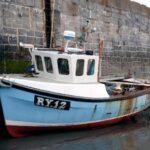

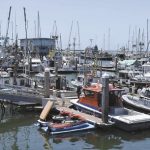


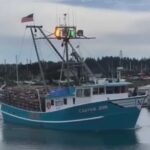
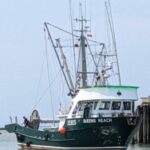
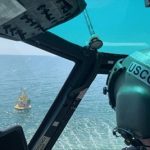
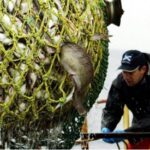



Atlantic Herring: Council Conducts “Debrief” on MSE Process for ABC Control Rule; Tell Us How You Think it Went!
The New England Fishery Management Council is seeking public comment on the Management Strategy Evaluation (MSE) process that was used to develop and analyze alternatives for a new acceptable biological catch (ABC) control rule in Amendment 8 to the Atlantic Herring Fishery Management Plan (FMP). The MSE process involved more public input through workshops and technical analysis earlier in the amendment development process than normal. Comments on the processare welcome until 8 a.m. on August 9, 2019. >click to read<08:49
Share this post